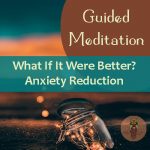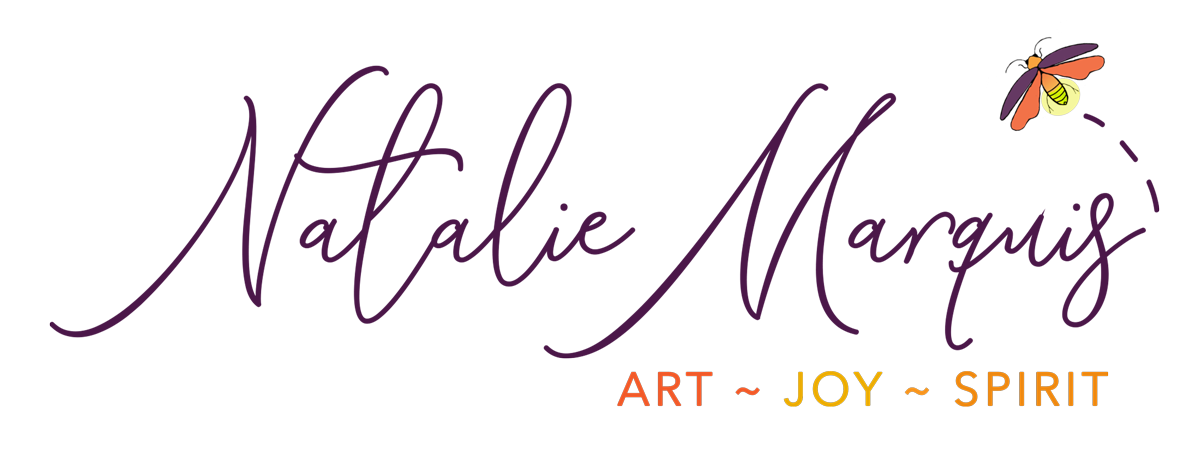Asking Better Questions Can Radically Change Your Life for the Better
One of my teachers used to say, “There’s no such thing as a bad question.” I’ve learned that’s just not true. Well, it’s actually is true in the classroom, but it’s definitely not true in life.
In a class, whether we’re teaching five years olds or fifty year olds, a teacher wants her students to be curious, creative, and lit on fire to know the subject better and that means asking questions. Quite often the question we think might be bad or dum, sheds a lot of light and brings new understanding. But in life, believing there are no bad questions, well it’s just bad, bad, bad.
We have been conditioned to think negatively
It’s bad because we humans tend to think the worst of things. It’s said we have anywhere from 12,000 to 60,000 thoughts per day, 98 percent of them are exactly the same as we had the day before and whopping 80% are negative thoughts. I’d venture to say about 50% of our negative thoughts are spent asking bad questions, and by “bad” I mean unhelpful, unproductive, energy sucking bad questions.
Negative thinking leads to bad questions that make us feel bad
We waste huge gobs of our thought power pondering why things aren’t working and how it all might go wrong. We think things like:
- How am I going to meet that crazy deadline?
- What if I never find a mate?
- When did I get so old (fat, ugly, mean, etc.).
- Why can’t I ever get anything right?
- How come I’m so stupid and my brother is so brilliant?
- Why did she get all looks (charisma, brains, confidence, etc.)?
- How come I can’t get someone to love me like I need to be loved?
- Why is it that no one appreciates all the work I do?
- Will I ever get out of debt?
- How is that no one appreciates how much stress I’m under?
Let’s face it, asking ourselves questions like these, just makes us feel like crap. When our thoughts get in a loop, thinking a stream of these questions, we end up feeling defeated, depleted and depressed. The good news is that there is a way out of this and it’s actually quite simple. But first, it’s important to understand a few things about the mind.
How our thinking mind works
The mind was created to think. It generates thoughts. It’s much like a radio station that is always on. Sometimes we like what we’re listening to and sometimes we don’t. And sometimes all we can hear is a bunch of meaningless static. The mind generates thoughts 24/7. It’s what the mind was created to do. The important thing to know is that you are not your thoughts. That’s right you are not your thoughts. You are the awareness behind your thought. You are the conscious awareness that is observing your thoughts. Those who practice meditation become very aware of this; that there is a much wiser consciousness above and beyond our thoughts. Master your mind and you master your life.
The mind is amazing. The mind learns, analyses, solves problems and creates extraordinary things. However, when the mind is allowed to focus on past hurts, future concerns or imagined catastrophes; it generates worries, anxiety, stress and sometimes even panic attacks. We worry, “What if I lose my job? What if my spouse leaves me? What if I get sick? What if my loved one dies? What if I die?” What if?!
Sometimes unhelpful thought patterns like this can cause us to get stuck in a worrying cycle. If our worries are left unchecked and allowed to run rampant, the worrying, which is a combination of thoughts and strong emotion, create energy and a momentum that fuels even more worry. So, the more we worry, well the more we worry until it seems like it would take a huge effort to get off the worry track.
The mind works like a Google search engine
Another important thing to know is that the mind is like a Google search engine. Ask it a negative question and it can only return negative data. It works like this, you worry to yourself , “What if I get sick?” Your mind can only search for answers to “what if I get sick”… so it scans your memories and experiences and comes back with data to show you what it’s going to be like when you get sick.
Ask “What will happen if I lose my job?”, it’s going to search your mental data base and come back with a whole bunch of answers that will show you what it’s going to be like when you lose your job. It typically only shows you the negative possibilities because your mind-set at the point of question was one of fear …so it returns only fearful or similar energetic data.
The Reticular Activating System (RAS) runs our mental search engine
The reason the mind does this is because of a thing called the Reticular Activating System or RAS for short. RAS is a bunch of nerve cells at the base of the brain that are responsible for filtering information. It’s a gatekeeper whose job is to filter out things that aren’t important to us. Without this filter, we’d go nuts trying to processing all the incoming sights, sounds, smells, and sensations that we’re exposed to in any given moment. RAS is what enables us to hear our baby’s muffled cry in the next room while disregarding the sound of the waste management truck picking up our trash.
Many years ago I bought a beautiful blue Honda S2000, a model that I had never heard of and never recalled seeing before. Once I bought the car, although not a hugely popular car, I spotted them much more frequently. Another time, in my early advertising days, I was scouting out locations for a photoshoot. It was for a home care client. We wanted to find the quintessential “home with a white picket fence” to grace the cover of their new brochure. I thought it would be an easy thing to do in New England. It turned to be harder than I’d thought. I just wasn’t seeing white picket fences. Finally, after a hot tip, we found a sweet home with a white picket fence. The photoshoot went well and the client’s new brochure turned out wonderfully warm and inviting. Not surprisingly, for several months after the shoot, I saw white picket fences everywhere I went. My RAS had finally kicked in.
How the Reticular Activating System works
RAS helps us see things that are important to us and ignores what isn’t. How does it know what is important to us? By what we constantly think about. RAS brings to our attention the things we think about consistently while filtering out the things we don’t. RAS filters what we notice in our physical environment AND our mental environment, all based on what we predominately think about.
RAS is the reason asking self-defeating questions, churns up more negative thinking. It’s also why, when you’re in negative state of mind, you notice more negativity around you. And, RAS is why when we ask negative questions, we can’t see all the helpful solutions and new opportunities around us. It’s because of RAS and our predominately negative thinking/questioning patter – we can’t see them!
The solution is to pivot and ask better a question
When you catch yourself asking a negative question, such as “Why doesn’t my boss appreciate me more.” Take some S.PA. time:
STOP
PIVOT
ASK A BETTER QUESTION
A better question might be,“What would it be like to have a boss that appreciates me? What would that look and feel like?” or “How would my work environment be different if I had a boss that appreciated me? How would my life change for the better?”
Typically when we ask a question we want want an immediate, helpful answer. But this isn’t the goal of asking a better question. The goal in pivoting with a better question is to get RAS working in a more helpful direction (filtering in helpful information) so you can begin to see the more opportunities and solutions all around you.
You’ll also notice that when you think a bad question, it feels crappy. Your heart sinks, your stomach feels icky, your nerves feel jittery. Yuck, right? But that’s okay, because when we pivot to a better question, it also feels better in our body. Cool, right? Don’t just take my word for it, though, try it yourself. Notice how you feel when you read and ponder the following negative questions versus their positive pivots:
How am I ever going to meet that crazy deadline?
Pivot to:
How would it feel if it was easy to meet this deadline? What would that look and feel like?
What if I never find a mate?
Pivot to:
How would it feel to be in a wonderful, new relationship? Or,
What would it be like to be in great relationship? What would that look and feel like?
When did I get so old looking?
Pivot to:
What would it be like to feel fabulous in my skin at any age?
Asking a better questions, feels so much better doesn’t it? Do this consistently and you will start noticing (filtering in) more positives sights, solutions, experiences, and opportunities.
What do to do when you’re in a negative thinking rut
 Sometimes when we’re in a serious negative thinking rut, we need a little more than a pivot or two, we need to bring out the bring guns. For this, I suggest the “What If It Were Better?” exercise. I’ll outline the exercise below, but it’s more powerful if you listen to my “What If It Were Better?” guided meditation.
Sometimes when we’re in a serious negative thinking rut, we need a little more than a pivot or two, we need to bring out the bring guns. For this, I suggest the “What If It Were Better?” exercise. I’ll outline the exercise below, but it’s more powerful if you listen to my “What If It Were Better?” guided meditation.
This guided meditation is a form of self-hypnosis that can help you recondition your habitual negative thinking patterns. It helps you move beyond your conscious analytical mind to the alpha-theta level of your subconscious. Our analytical mind is great for analyzing and processing information, but if we want to rewire the way we tend to think, the subconscious is the place to go. Our subconscious runs the show and it’s where our beliefs, habits, and long term memories are stored. Any thing we do in the subconscious tends to “stick” better.
To practice the “What if it were better” exercise, give yourself time to really ponder and imagine the answer to each question. You may do this in your mind or you can write your responses in a journal. Your initial answers might be on the practical side, but with each subsequent answer allow your imagination to go wild, to go bigger and better.
The “What If It Were Better?” Exercise
When you catch yourself worrying “what if this goes wrong” instead and ask yourself this miraculous question- What if it were better?
That’s right; What if it were better?
What would a better experience look and feel like?
What would you be doing? What do you see or notice? What do you hear? How do you feel?
And now, that you’ve imagined that, I invite you to ponder what would even better look and feel like?
What would an even better experience look and feel like?
What would you be doing? What do see or notice? What do you hear? How do you feel?
What if something really amazing happened, that was even better than this?
What would an even better experience look and feel like?
What would you be doing? What do see or notice? What do you hear? How do you feel?
What if this experience released a new gift or talent in you? What might that be? And how would it make you feel?
And what if something even better than all of these things combined happened? What would that look like? And how would it make you feel?
Now, notice how you feel. Pretty amazing, huh? Doesn’t thinking like this, feel really good? There’s a bit more in the guided meditation, you can try it out here: What If It Were Better guided meditation.
Catch & release your way to a happier you
There you have it, two simple methods to help you shift from unhelpful, negative thinking patterns to one that’s more empowering. Your job now is to catch yourself when you’re pondering negative questions and thoughts and release them so you can choose better.

PS: If you liked the guided meditation, you can purchase it and several others like them on my Guided Meditations page.
PPS: If you still can’t shake some of your negative thoughts, consider scheduling a Reiki Release Emotional Healing Method session. Together we can shift your troublesome thinking patterns and emotional responses into new a empowering mindset.
More Helpful Reading about RAS and Negative Thinking
- You are How You Think: The Brain’s Reticular Activity Systems and Why It’s So Important
- The Reticular Activating System’s (RAS) huge influence on Self-perception
About Natalie Eve Marquis, RMT, CH
Natalie Eve Marquis, RMT, CH of the Wisdom Within is a heart-centered catalyst helping people heal and deepen their connection to their inner wisdom and the Divine. She is a Reiki Master Teacher, intuitive energy healer, certified consulting hypnotist, intuitive consultant and teacher.
Natalie’s unique Reiki Release® Emotional Healing Method is a powerful intuitive healing process that helps pinpoint and release the root causes of emotional blocks and negative beliefs so you can heal, transform and live your best life ever!
Natalie teaches all levels of Reiki certification both online and in person. She also provides a variety of fun and informative workshops on intuition development, past life healing, and more in NH, MA, AZ, and NC.
You can work with Natalie by phone and zoom. Visit: https://nataliemarquis.com/ or call/text (603) 642-4949.


